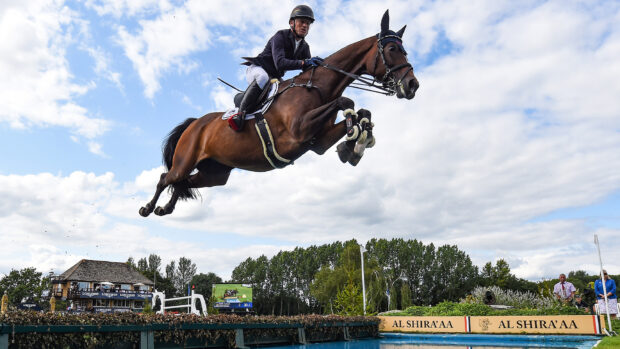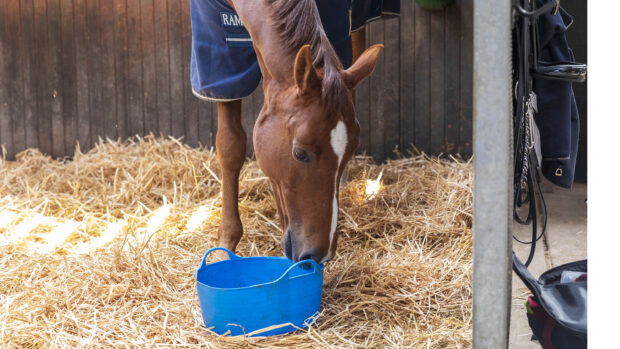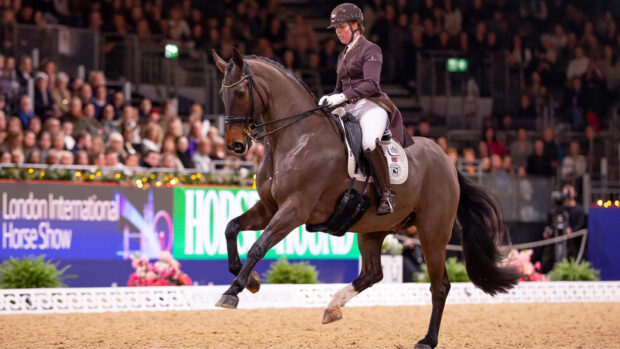EQUESTRIANS are urged to support major events as “freedom day” lifts most of the remaining Covid restrictions, in a “welcome day for the industry”
From 19 July in England, limits on social contact ended, with no restrictions on indoor or outdoor gatherings. Most restrictions have also been lifted in Scotland, and those in Wales have been eased, while Northern Ireland was due to review its guidance on 22 July.
Despite the changes in guidance, British Equestrian (BEF) is recommending that everyone in the industry “remains vigilant, respects others, and follows hygiene measures to keep everyone safe and reduce the chances of transmission of the virus”.
One of the first major events to benefit from the changes was the Royal International Horse Show (21–25 July).
Hickstead director Lizzie Bunn told H&H the team was “right to be cautious” regarding the jumping championships that replaced the Derby meeting last month, when the planned lifting of restrictions was delayed.
“But this time ‘freedom day’ has arrived just as we are about to open our gates for the Royal International Horse Show,” she said. “What this means for us is that we don’t have to stick to our cap of 4,000 tickets per day, though we do expect the show to be quieter than in a normal year – usually our box office is open for at least six months, rather than a few weeks, plus the showjumping is running as a two-star instead of the usual CSIO5*.
“On the positive side, being quieter means it’s a great way for spectators to ease themselves back into attending a large-scale event – we have a 120-acre site so there’ll be loads of room for everyone to move around to watch the various rings and browse our tradestands, plus we have two huge open grandstands with plenty of seating. What we do hope is that lots of equestrian fans come to Hickstead this week, as we’ve done our utmost to put on our three main fixtures this year, and we’ve made ticketing much cheaper than usual, with under-16s going free. All equestrian venues have had a torrid 18 months, and now that shows can recommence we need as many people to support them as possible.”
British Showjumping has retained some of its show protocols and amended others. Entries must still be made, and paid for, online in advance, and times released before the competition.
The number of riders allowed in the warm-up has been increased to eight, with up to two people allowed in to adjust practice fences. For classes at 1.40m and above, one person per rider is allowed in the warm-up to alter jumps. Warm-up areas should be monitored by a steward or marshal.
All other restrictions are lifted, although show organisers are urged to continue measures aimed at preventing spread of the virus.
British Dressage (BD) protocols will remain, during the “current wave of infections”, and although BD’s guidance is now advisory rather than mandatory restrictions, “it is still incumbent upon all members and stakeholders to continue to act responsibly in order to protect all of the sport’s participants”.
Guidance includes a recommendation to be vaccinated, and allows centres to distribute score sheets on show days in a controlled and socially distant manner.
The British Horse Society is advising riding schools that parents and spectators can now return to watch lessons, and that centres are no longer required to record details of participants, spectators or helpers. But all attendees should be encouraged to “check in” with the NHS QR code to help trace close contacts in the event of a positive case, and all centres must still carry out Covid risk assessments for all activities.
The Riding for the Disabled Association (RDA) may notice the biggest benefit; H&H has reported that many RDA groups have not been able to reopen as many participants are shielding or need to be supported to ride in a manner that is not socially distant.
“The lifting of legal restrictions will definitely enable more of our groups to get going again and welcome back more participants,” RDA head of communication and insight Caroline Ward told H&H.
“Hopefully more of our school groups will be able to return to off-site activities – which has been very restrictive for many groups. We can also now support riders with volunteers on either side, which means more participants will be able to get back in the saddle. The lifting of restrictions will be a confidence booster to many – both participants and volunteers – and we hope to be back to our usual levels of activity soon.”
Continues below…

RDA’s appeal to equestrians as social distancing proves a major challenge *H&H Plus*

Competition on and supporters welcomed as normality starts to return *H&H Plus*

Subscribe to Horse & Hound magazine today – and enjoy unlimited website access all year round
BEF chief executive Jim Eyre added: “This is welcome news for our industry, which has truly felt the full impact of the pandemic. The changes will allow businesses to operate more completely, events can welcome competitors and spectators in larger numbers, and we can all begin to move towards a sense of normality.
“However, I’d urge everyone to remain vigilant, respect others and continue to act with a degree of caution – now is not the time to undo the progress we’ve collectively made.”
Horse & Hound magazine, out every Thursday, is packed with all the latest news and reports, as well as interviews, specials, nostalgia, vet and training advice. Find how you can enjoy the magazine delivered to your door every week, plus options to upgrade to access our H&H Plus online service which brings you breaking news as it happens as well as other benefits.




